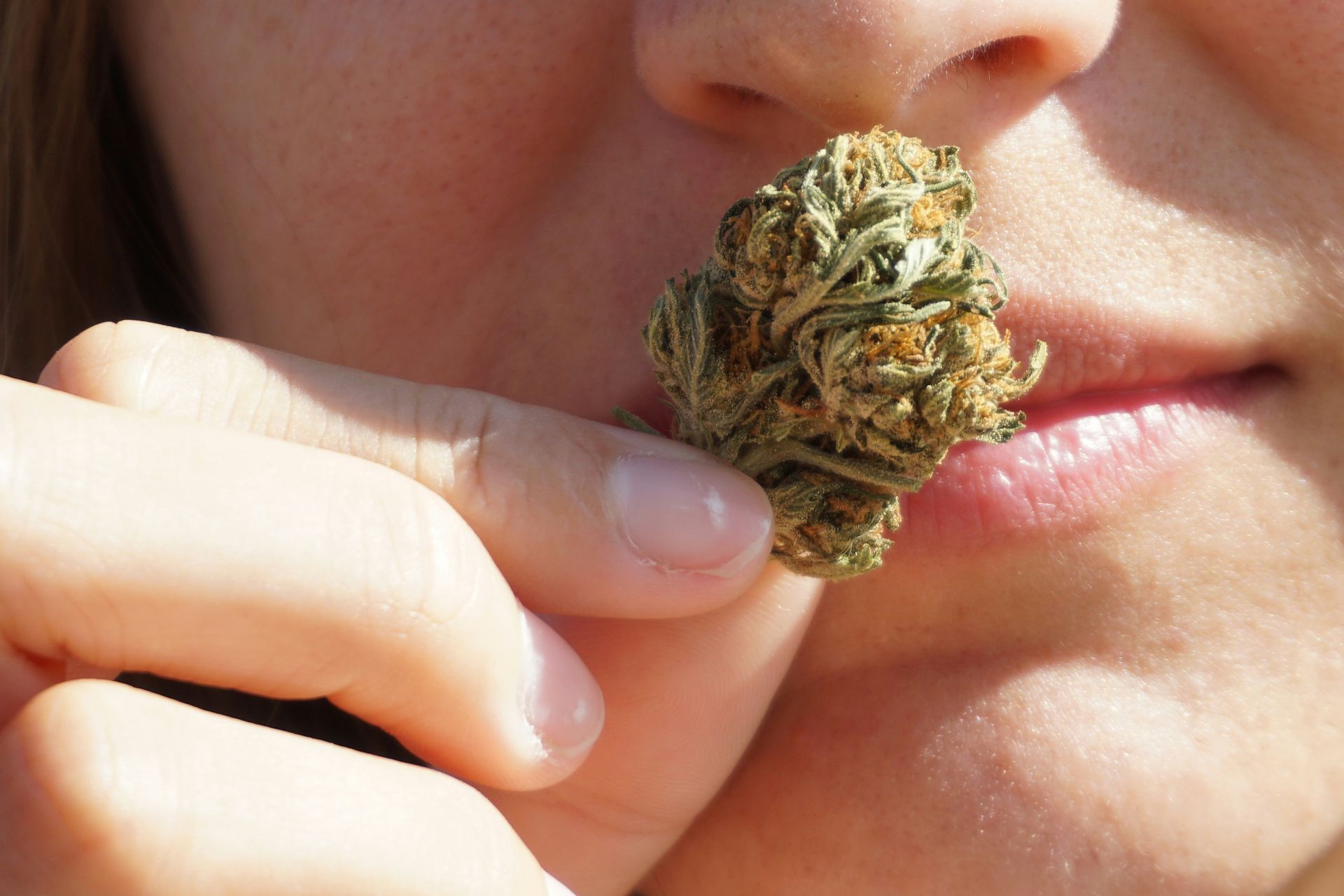
Amidst the seasonal ebb and flow of colds and flu, the search for relief often leads us down unexpected paths. Cannabis, with its diverse array of therapeutic properties, has emerged as a topic of interest in this realm. Curious minds now ponder: what are the effects of cannabis on cold and flu symptoms?
In this exploration, we delve into the intriguing intersection of cannabis and respiratory ailments, uncovering potential benefits and considerations for those seeking relief from the discomforts of colds and flu, especially in relation to smoking cannabis and its link to respiratory symptoms and viral infections during flu season.
How does cannabis help alleviate cold and flu symptoms?
Cannabis may offer relief from common cold and flu symptoms through its anti-inflammatory and analgesic properties. Compounds like THC and CBD interact with cannabinoid receptors in the body, potentially reducing inflammation and alleviating sore throat, headaches, and body aches.
These cannabinoids may also help modulate immune responses, which could mitigate symptoms of viral infections such as runny or stuffy nose. Additionally, non-psychoactive cannabinoids may aid in respiratory function, offering potential benefits for respiratory symptoms associated with colds and flu.
However, research on cannabis' specific effects on cold and flu symptoms, including pulmonary infections and respiratory diseases, is ongoing. It's essential to consult healthcare professionals before using cannabis as a remedy or supplement to flu medication, considering individual medical needs and potential interactions.
Are there any risks or side effects associated with using cannabis for cold and flu symptoms?
While cannabis may offer potential relief for common cold and flu symptoms, it's essential to consider associated risks and adverse effects, particularly when smoking weed. Clinical studies suggest cannabinoids interact with cannabinoid receptors in the body, potentially alleviating symptoms like chronic pain, sore throat, and runny nose by modulating the inflammatory response and immune cells.
Smoking cannabis can irritate the respiratory system, exacerbating respiratory symptoms and increasing the risk of pulmonary infections. Moreover, cannabis smokers may experience negative long-term effects on pulmonary function and respiratory health, including airway inflammation and respiratory diseases.
There's a risk of infection transmission through shared smoking devices. While medical cannabis may offer beneficial effects, individuals should weigh potential health benefits against risks and consult healthcare professionals for personalized advice regarding the use of cannabis for cold and flu symptoms.
How does cannabis interact with over-the-counter cold and flu medications?
The interaction between cannabis and over-the-counter cold and flu medications remains understudied, yet potential concerns arise, especially concerning safety in patients with advanced liver fibrosis or compromised immune function, such as HIV-infected individuals.
Both cannabis and certain cold medications, like antihistamines or decongestants, may induce drowsiness or dizziness. Combining them could heighten these effects, leading to increased sedation and impairment. Additionally, cannabis and certain medications may impact liver enzymes involved in drug metabolism, potentially altering efficacy or causing adverse side effects.
While cannabis possesses antiviral properties that may benefit immune function, its effects on pulmonary function warrant consideration, especially in infected persons or those with respiratory conditions.
Consulting healthcare professionals is crucial before combining cannabis with common cold or flu medications, particularly for individuals with advanced liver fibrosis or compromised immune systems, to ensure safety and avoid potential interactions or contraindications.
Being mindful of health precautions and potential adverse effects is essential, as is monitoring the progression of liver fibrosis and pulmonary function while using cannabis and over-the-counter medication to manage common symptoms associated with colds or flu.
Can cannabis help manage symptoms during different stages of cold and flu?
Cannabis shows potential in managing symptoms across different stages of cold and flu. Its anti-inflammatory action may alleviate sore throat and reduce inflammation during the early stages. As symptoms peak, cannabinoids could offer relief from muscle pains and chronic cough, while modulating immune responses to combat viral infections.
However, limited research exists on cannabis's specific effects on cold and flu. Caution is advised due to potential negative effects, especially concerning immune function and long-term use. Consulting healthcare professionals is crucial to assessing safety in patients, considering potential risks, benefits, and the risk of infection transmission.
While cannabis may offer alternative relief for inflammatory conditions associated with viral diseases, its effects on immune cells and the progression of viral infections warrant careful consideration during different stages of illness.
Are there specific strains or products recommended for cold and flu relief?
While specific cannabis strains or products tailored for cold and flu relief are not widely recognized, certain strains may offer symptom relief due to their reported therapeutic properties. Strains high in CBD, such as ACDC or Harlequin, are often preferred for their anti-inflammatory and analgesic effects, potentially easing symptoms like sore throat and muscle aches.
Additionally, strains with higher levels of terpene myrcene, such as Granddaddy Purple or Blue Dream, are believed to have sedative and muscle-relaxing properties, which could aid in promoting restful sleep and alleviating discomfort.
Individual responses to cannabis can vary, so it's essential for individuals to experiment cautiously and consult budtenders or healthcare professionals for personalized recommendations based on their specific symptoms and preferences. Moreover, individuals should prioritize safety and be mindful of potential adverse effects, especially if combining cannabis with other medications or remedies for cold and flu relief.
Considering the potential impact of cannabis use on immune function and disease progression, individuals should weigh the potential beneficial effects of active cannabinoids against potential long-term effects and adverse health consequences, particularly in the context of viral infections and inflammatory conditions like the common cold and influenza.
Conclusion:
In conclusion, while specific cannabis strains or products for cold and flu relief are not firmly established, certain options may offer symptom alleviation. With caution and guidance from healthcare professionals, individuals can explore potential benefits while being mindful of safety considerations and personal preferences.






